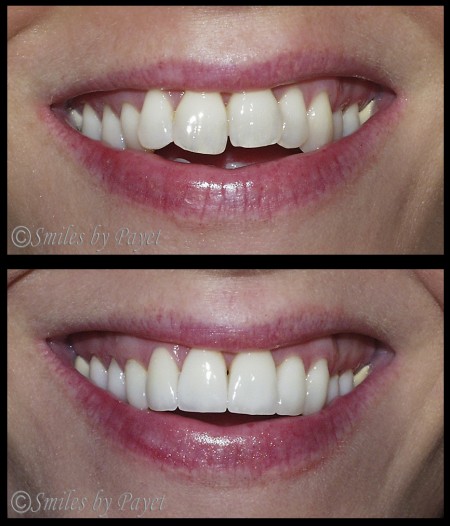Ever wondered what’s under those perfect smiles with dental veneers? Veneers are known for making smiles look great. But what do they do to the teeth underneath? Do they protect your teeth or just cover up problems? Let’s dive into how veneers affect your natural teeth.
Key Takeaways
- Dental veneers are a popular cosmetic dental restoration that improve the appearance of teeth.
- Maintaining oral hygiene is critical to protecting both veneers and the natural teeth underneath.
- Proper care includes regular brushing, flossing, and dental checkups.
- Veneers bond to tooth enamel and can offer additional protection against cavities.
- Neglecting oral care can lead to bacteria buildup, decay, and potentially more severe dental issues.
Understanding Dental Veneers
Dental veneers are thin coverings made from porcelain or composite resin. They are designed to make teeth look better. These treatments can cover flaws and make a smile look better.
Porcelain veneers are very durable and look natural. They are made in a lab from dental impressions. Then, they are bonded to teeth with a special adhesive and light curing process.
This method makes sure the veneers look like real teeth. It gives patients a refined look they want.
Composite resin veneers are sculpted right onto the teeth. They need more enamel removal than porcelain veneers. But, they are a flexible and affordable choice for improving smiles.
Both types of veneers keep the patient’s natural teeth safe. The teeth under the veneers stay strong and support the veneers. This makes veneers a great choice for a lasting smile makeover.
The Preparation Process for Veneers
Getting ready for dental veneers is key to a natural-looking smile. It starts with a dental impression of your teeth. This mold helps make custom veneers that fit and look just right.
A big part of tooth preparation is enamel reduction. This means taking off a little enamel. It makes sure the veneers fit well and don’t look too big.
There are two main types of veneers: porcelain and composite resin. For porcelain veneers, a lot of enamel is removed. Then, a temporary veneer is put on while the real one is made. At the last visit, secure bonding is done with a strong glue, making sure the veneer stays in place.
Composite resin veneers need more enamel removed. The resin is molded onto the tooth, shaped, and then set with a special light. The aim is to keep as much of your natural tooth as possible while making it look great.
In short, whether you choose porcelain or composite resin veneers, steps like dental impression, enamel reduction, tooth preparation, and secure bonding are key. Each step is done with care to make sure your veneers last long and look good.
Longevity and Durability of Veneers
The lifespan of veneers depends on the material used. Porcelain veneers can last more than 20 years because they are very durable. Composite veneers usually last between 7 to 10 years. This makes porcelain veneers a top choice for those wanting a long-lasting fix.
Many things can affect how long veneers last, like chipping, breaking, changes in bite, and gum recession. Even though veneers don’t stain easily and don’t decay, good oral hygiene is key. Not taking care of your mouth can lead to tooth infection, which can harm the veneers and natural teeth.
To keep veneers lasting longer, it’s important to take good care of them. Make sure to visit your dentist regularly for check-ups and cleanings. These visits help keep an eye on the health of your teeth and veneers, preventing infections and decay.
In summary, the life of veneers depends a lot on their material, with porcelain being more durable than composite. But, good dental care and regular dentist visits are also key to keeping veneers in top shape.
Proper Care and Maintenance of Veneers
Maintaining veneers is similar to caring for natural teeth. You should brush twice a day with fluoride toothpaste. This helps prevent decay around the veneers. It’s also key to floss regularly to remove plaque and food bits from between teeth and around veneers.
Using an antibacterial mouthwash helps control bacteria that can lead to gum disease or infections. Avoid biting on hard items like ice or pens to prevent veneers from chipping. Also, stay away from foods and drinks that stain, such as coffee and red wine, to keep veneers looking new.
Regular dentist visits for dental cleanings are vital for catching problems early. These cleanings keep your teeth and veneers in top shape. Watch for signs of decay or infection, like loose veneers, increased sensitivity, or swollen gums. If you notice these, see a dentist quickly. They might need to replace the veneer or treat the tooth.
What happens to teeth under veneers?
Dental veneers can greatly improve your smile by covering the front of your teeth. But it’s important to know how they affect the teeth underneath. Veneers protect teeth from chips and stains, but they’re not perfect.
Veneers don’t cover the whole tooth. The back and sides are still open to decay. Keeping up with good oral care is key to preventing decay and keeping veneers in good shape.
Good dental hygiene is a must. Brushing, flossing, and regular dentist visits help keep veneers and teeth healthy. By taking care of your mouth, you can enjoy your improved smile for years to come.
Conclusion
Dental veneers are popular for their benefits in both looks and function. They are a top choice for those wanting a better smile. But, getting the best results means more than just the initial treatment. It’s about keeping up with good oral hygiene and regular dental visits.
Keeping veneers in top shape is a matter of good oral health habits. This means brushing and flossing regularly and avoiding bad habits like biting hard objects or teeth grinding. Regular dentist visits also help keep an eye on veneer and tooth health.
In short, dental veneers are a great way to boost your smile. The secret to keeping them working well is careful and ongoing care. By taking good care of your veneers and teeth, your smile can stay bright and healthy for a long time. Choosing to take good care of your veneers and your teeth makes the investment worth it.







